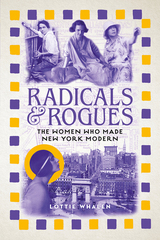7 books about European Integration
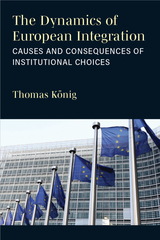
The Dynamics of European Integration
Causes and Consequences of Institutional Choices
Thomas König
University of Michigan Press, 2024
In Europe’s recent history, there have been several challenges to the strength of the European Union—Brexit, COVID, financial crises, and global tensions—bringing an increased need to understand the ways that the European Union (EU) could successfully stay together or fall apart. In examining how the European Union has changed since 1993, important puzzles have emerged, including how national government functions are transferred to the EU without reforming the EU, how increased transparency is announced while decisions are approved in informal meetings, and how the effects of the polarizing rise of Euroscepticism can be managed to still promote the formation of solidarity and trust among Europeans. To understand these puzzles, Thomas König introduces a new theory of (supra)national partyism to help explain the causes and consequences of choices made by political leaders for Europe. He uses a game-theoretical perspective to look at how conditions for leaders change through accessions of new members, shocks, and crises, and separates institutional choices into two different games played by office- and policy-seeking political leaders—the interstate summit game and the national game of party competition. The Dynamics of European Integration reveals how the reorganization of electoral systems can harness dissensus and polarization among diverse national constituencies to enable the promotion of solidarity and trust in the EU.
[more]
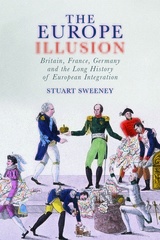
The Europe Illusion
Britain, France, Germany and the Long History of European Integration
Stuart Sweeney
Reaktion Books, 2019
Leonardo da Vinci (1452–1519) was one of the pre-eminent figures of the Italian Renaissance – he was also one of the most paradoxical. He spent an incredible amount of time writing notebooks, perhaps even more time than he ever held a brush, yet at the same time Leonardo was Renaissance culture’s most fanatical critic of the word. When Leonardo criticized writing he criticized it as an expert on words; when he was painting, writing remained in the back of his mind.
In this book, Joost Keizer argues that the comparison between word and image fuelled Leonardo’s thought. The paradoxes at the heart of Leonardo’s ideas and practice also defined some of Renaissance culture’s central assumptions about culture and nature: that there is a look to script, that painting offered a path out of culture and back to nature, that the meaning of images emerged in comparison with words, and that the difference between image-making and writing also amounted to a difference in the experience of time.
In this book, Joost Keizer argues that the comparison between word and image fuelled Leonardo’s thought. The paradoxes at the heart of Leonardo’s ideas and practice also defined some of Renaissance culture’s central assumptions about culture and nature: that there is a look to script, that painting offered a path out of culture and back to nature, that the meaning of images emerged in comparison with words, and that the difference between image-making and writing also amounted to a difference in the experience of time.
[more]
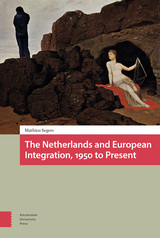
The Netherlands and European Integration, 1950 to Present
Mathieu Segers
Amsterdam University Press, 2020
On 9 May 1950, France launched a revolutionary plan for supranational cooperation in Western Europe. The Netherlands was taken completely by surprise. In the decades that followed, European integration moved forward at an unprecedented pace, taking the Netherlands with it. Geography and the post-war world seemed to leave the country no other choice. European integration forced - and is still forcing - the Netherlands on a far-reaching 'journey to the continent'.For the Netherlands, European integration represents a difficult journey to a new old world that often seems far off. How has that journey progressed so far? Why did the Netherlands join the common European market and currency from the very beginning? Was this course inevitable? And where has it brought the country?Using new, international source material, The Netherlands and European Integration digs deeply into the history of the Netherlands in Europe - a subject that is today more topical than ever.
[more]
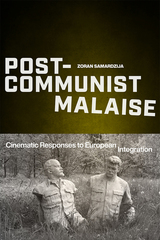
Post-Communist Malaise
Cinematic Responses to European Integration
Zoran Samardzija
Rutgers University Press, 2020
The collapse of communism in the Soviet Union and Eastern Europe was supposed to bring about the “end of history” with capitalism and liberal democracy achieving decisive victories. Europe would now integrate and reconcile with its past. However, the aftershocks of the financial crisis of 2008—the rise in right-wing populism, austerity politics, and mass migration—have shown that the ideological divisions which haunted Europe in the twentieth century still remain. It is within this context that Post-Communist Malaise revives discourses of political modernism and revisits debates from Marxism and seventies film theory. Analyzing work of Theo Angelopoulos, Věra Chytilová, Srdjan Dragojević, Jean-Luc Godard, Miklós Jancsó, Emir Kusturica, Dušan Makavejev, Cristi Puiu, Jan Švankmajer, Andrei Tarkovsky, and Béla Tarr, the book focuses on how select cinemas from Eastern Europe and the Balkans critique the neoliberal integration of Europe whose failures fuel the rise of nationalism and right-wing politics. By politicizing art cinema from the regions, Post-Communist Malaise asks fundamental questions about film, aesthetics, and ideology. It argues for the utopian potential of the materiality of cinematic time to imagine a new political and cultural organization for Europe.
[more]
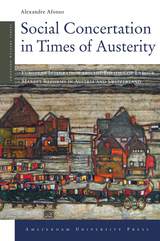
Social Concertation in Times of Austerity
European Integration and the Politics of Labour Market Reforms in Austria and Switzerland
Alexandre Afonso
Amsterdam University Press, 2013
A term specifically found in European politics, social concertation refers to cooperation between trade unions, governments and employers in public policy-making. Social Concertation in Times of Austerity investigates the political underpinnings of social concertation in the context of European integration. Alexandre Afonso focuses on the regulation of labor mobility and unemployment protection in Austria and Switzerland, two of Europe’s most prosperous countries, and he looks at nonpartisan policymaking as a strategy for compromise. With this smart, new study, Afonso powerfully enters the debate on the need for a shared social agenda in post-crisis Western Europe.
[more]
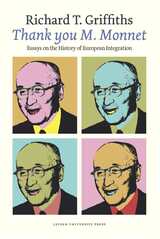
‘Thank you M. Monnet’
Essays on the History of European Integration
Richard Griffiths
Amsterdam University Press, 2014
This book collects contributions by Richard T. Griffiths on the history of European integration, some published for the first time in English. The essays range in chronology from the early experiences with the Marshall Plan to the difficulties and opportunities for the EFTA countries afforded by association with the EEC in the 1970s and 80s. The book interprets European integration far wider than simply the current European Union and its forerunners. Thus, it devotes chapters to EFTA, the OECD, and to issues as agriculture, cartels and monetary problems. The volume also contains the essay in the title which poses the question of what would have happened had there been no Schuman Plan back in 1950. This book should appeal to students of contemporary history, especially those interested in EU history, and to political scientists who will discover a rich palette of case studies upon which to test their theories. Its constructively critical slant on developments provides interesting perspectives to those general readers seeking a nuanced approach between the extremes of the current pro- or anti- in the debates on Europe.
[more]
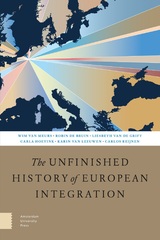
The Unfinished History of European Integration
Wim van Meurs et al.
Amsterdam University Press, 2018
When the Treaty of Lisbon went into effect in December 2009, the event seemed to mark the beginning of a longer phase of institutional consolidation for the EU. Since 2010, however, the EU has faced multiple crises, which have rocked its foundations and deeply challenged the narrative of 'the end of the history of integration'. The military crisis in eastern Ukraine and the refugee crisis call for a joint approach, but in practice reveal the difficulty of maintaining even the appearance of European solidarity and political unanimity. The financial and socio-economic crisis in southern Europe and Brexit present the EU with the latest set of challenges. If seventy years of European integration have taught us anything, it is that fundamental crises as well as moments of rapid institutional change form integral parts of its history. The Unfinished History of European Integration presents the reader with historical and theoretical knowledge on which well-founded judgements can be based.This textbook on European integration history has been written as a student textbook for a bachelor's or master's programme in European integration history, as a manual for the analysis of EU sources and, finally, as an information resource for a bachelor's or master's thesis.
[more]
READERS
Browse our collection.
PUBLISHERS
See BiblioVault's publisher services.
STUDENT SERVICES
Files for college accessibility offices.
UChicago Accessibility Resources
home | accessibility | search | about | contact us
BiblioVault ® 2001 - 2024
The University of Chicago Press






